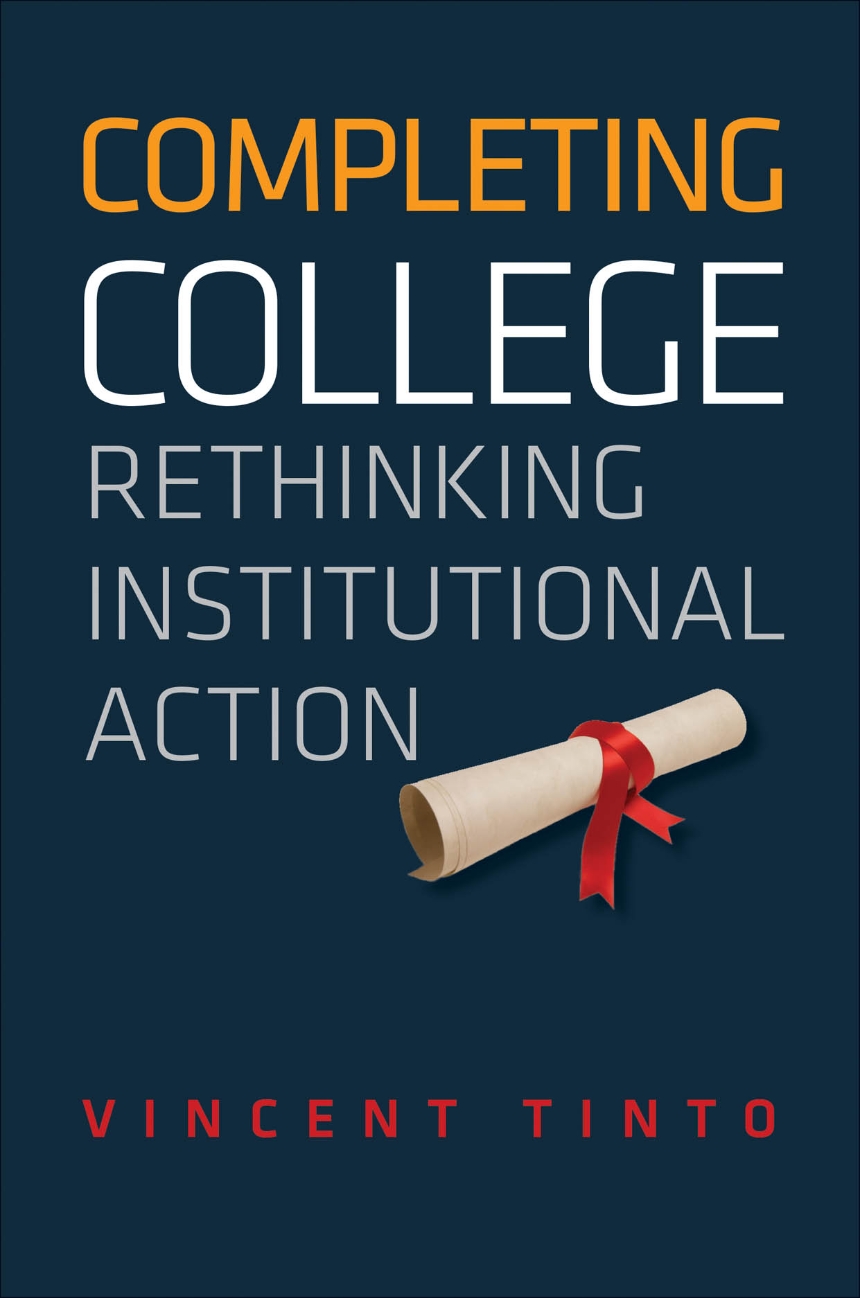Completing College
Rethinking Institutional Action
Even as the number of students attending college has more than doubled in the past forty years, it is still the case that nearly half of all college students in the United States will not complete their degree within six years. It is clear that much remains to be done toward improving student success. For more than twenty years, Vincent Tinto’s pathbreaking book Leaving College has been recognized as the definitive resource on student retention in higher education. Now, with Completing College, Tinto offers administrators a coherent framework with which to develop and implement programs to promote completion.
Deftly distilling an enormous amount of research, Tinto identifies the essential conditions enabling students to succeed and continue on within institutions. Especially during the early years, he shows that students thrive in settings that pair high expectations for success with structured academic, social, and financial support, provide frequent feedback and assessments of their performance, and promote their active involvement with other students and faculty. And while these conditions may be worked on and met at different institutional levels, Tinto points to the classroom as the center of student education and life, and therefore the primary target for institutional action.
Improving retention rates continues to be among the most widely studied fields in higher education, and Completing College carefully synthesizes the latest research and, most importantly, translates it into practical steps that administrators can take to enhance student success.
283 pages | 11 tables | 6 x 9 | © 2012
Education: Higher Education
Sociology: General Sociology
Reviews
Table of Contents
Chapter Two: Expectations
Chapter Three: Support
Chapter Four: Assessment and Feedback
Chapter Five: Involvement
Chapter Six: Administrative Action
Chapter Seven: Enhancing Student Success
Appendix A: Retention and Persistence
Appendix B: Retention and Accountability
Notes
References
Index
